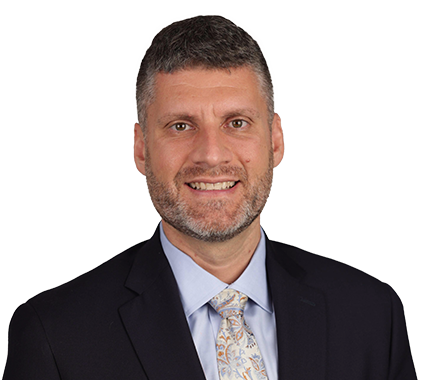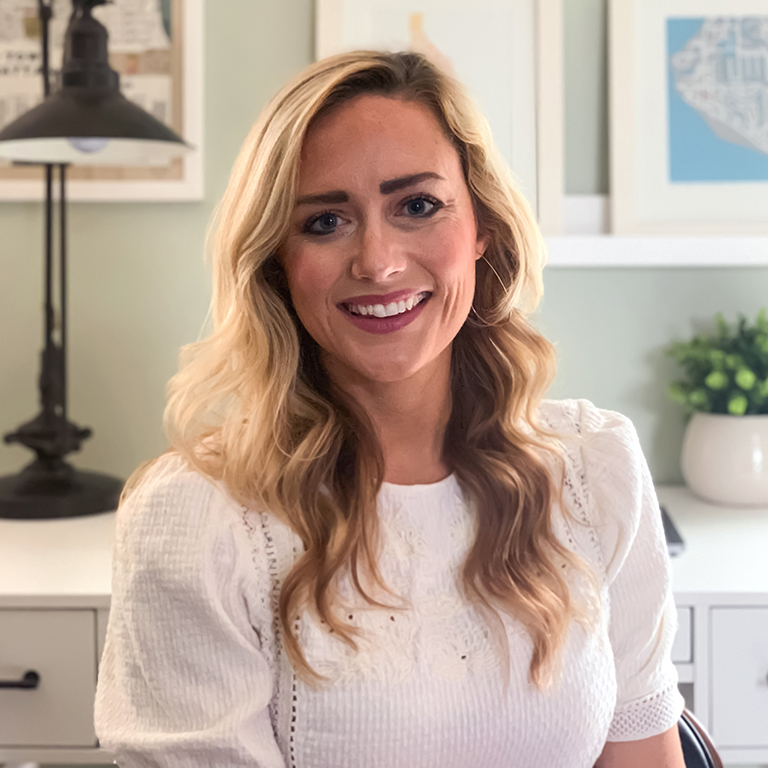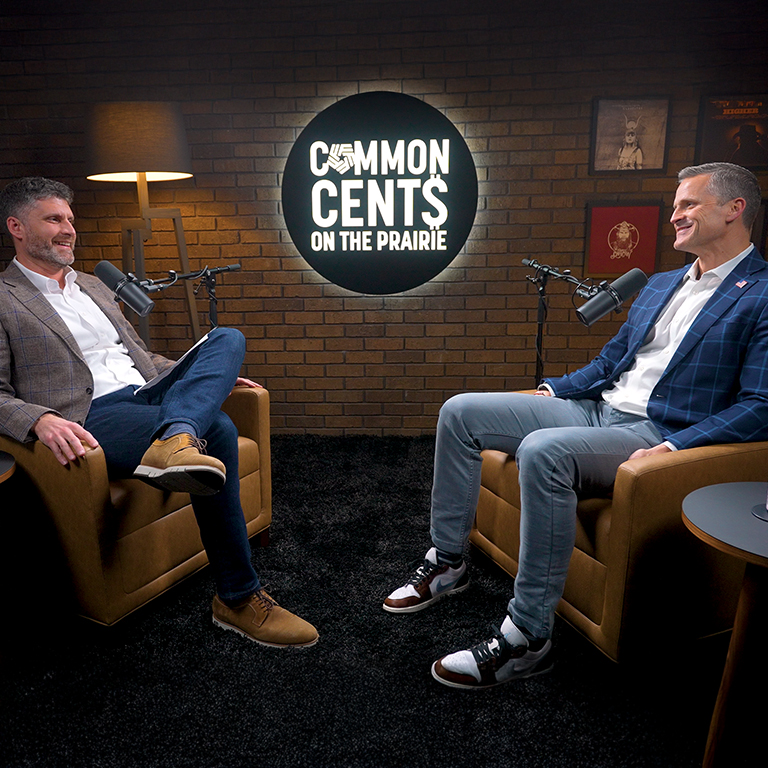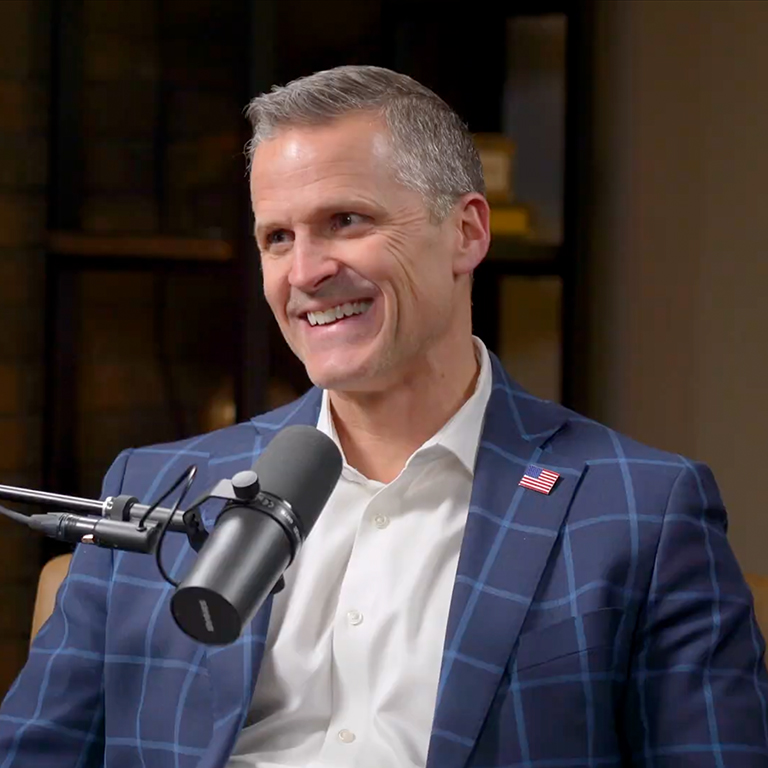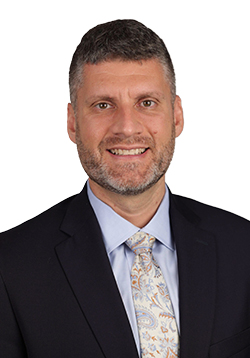
Retirement can be exciting — or scary, depending on your circumstances.
For those who plan well, account for their anticipated needs, and have a good idea of what to expect, retirement can and should be rewarding! But for those who don’t plan and may have let retirement sneak up on them, this life stage can be daunting and possibly feel unattainable.
That’s why we sat down with Roger Whitney for the latest episode of Common Cents on the Prairie™. Roger has been a financial advisor for more than 25 years and hosts the award-winning podcast The Retirement Answer Man®. On top of that, he established the Rock Retirement Club in 2018 to help foster a safe online space for soon-to-be retirees to learn, plan, and interact with other like-minded pre-retirees. As if that’s not enough to keep him busy, he’s also the author of Rock Retirement, a simple guide to help you take control of and be more optimistic about the future. In this episode, Roger shares with Adam the tips he gives clients to help them prepare for retirement.
You can read a recap of our conversation below, watch the entire episode, or find Common Cents on the Prairie™ wherever you stream your podcasts.
Retirement is a major life event
Often, people think of retirement as a number, whether that number is 65 (or whatever age you aim to retire at) or the amount of money you want, need, or have for this stage in your life. However, for those who see a gap between what they have and what they need for retirement, the numbers can leave a lot of undesirable options.
 Save more money now. Take investment risks to try to catch up and get returns. Work longer so you can keep saving longer. Settle for less money when you do retire. If you’re close to retirement or starting to think about retiring, do any of these options sound like fun to you?
Save more money now. Take investment risks to try to catch up and get returns. Work longer so you can keep saving longer. Settle for less money when you do retire. If you’re close to retirement or starting to think about retiring, do any of these options sound like fun to you?
Retirement is a major life event, not just financially but also mentally. Therefore, to be both financially and mentally ready for retirement, we need to stop thinking about it just in terms of numbers.
What is retirement really about?
For most people, the goal of retirement isn’t to quit working; it’s actually to achieve time freedom. Unlike traditional retirement, in which we imagine our grandparents sitting on a park bench and reading a book in Florida, modern retirement is about staying on the playground, so to speak. People want control over their time more than they want to “do nothing.”
However, many people still think of retirement as a way to take away the pain of commutes and conference calls. Then, when they get out into the freedom of retirement, they find themselves bored or lacking in the habits and rhythms that a steady career provides.
So, it’s important to make sure you have something to retire to rather than something to retire from. And for those who want more time freedom but don’t necessarily want to quit working, retirement can provide an opportunity to work at a job that they enjoy and find fulfilling rather than working just to earn an income.
Preparing for retirement
If you’ve reached the point where you’re thinking about retirement and striving for time freedom, then it’s time to start planning. The first step? Stop looking backward, and focus only on the future.
We all make mistakes throughout our lives, whether personal or financial, that can set us back on our journey to a successful retirement. However, dwelling on these mistakes only makes it more difficult to retire comfortably.
Instead, when you begin preparing for retirement, it’s important to forgive yourself for your past mistakes and close that door so you can start looking forward and planning proactively. After that, Roger instructs his clients to use the W.A.M. method.

The W stands for what: what should I do next? What is my next action? Pre-retirees must determine what their next move is to prepare themselves for retirement.
Then, the A is action. You have to hold yourself accountable to take action towards completing the what.
After that, you can achieve momentum (the M). Human beings live on accomplishment and the thrill of achieving something. Therefore, the momentum built by completing the what will help keep the cycle of W.A.M. going until you’ve reached your retirement goals.
Finding balance
Retirement is like a teeter-totter; on one end is wanting to have a great life today, on the other end is wanting to have a great life when you’re 85, and in the middle is you trying to balance both ends. Since retirement is a long journey — and a front-loaded one, at that — people often deny themselves early on.
They try to optimize their money so they are guaranteed to have enough when they’re 85, but this usually means denying themselves when they’re 65, healthy, and free to spend their time how they choose. This can lead to regret later in life when one realizes they have enough money to make it but missed out on opportunities early on.
 That teeter-totter is a struggle for people, which is why it’s important to work with a financial planner. On top of that, Roger recommends mapping out the first year of retirement. Doing this can give you clarity of what to do when you wake up every day so that you don’t get bored or deny yourself too much.
That teeter-totter is a struggle for people, which is why it’s important to work with a financial planner. On top of that, Roger recommends mapping out the first year of retirement. Doing this can give you clarity of what to do when you wake up every day so that you don’t get bored or deny yourself too much.
Retirement is a loss
The last thing to remember when preparing for retirement is that it is a loss. In some ways, retirement is like a divorce because your career is a part of who you are.
When you retire, the comradery and achievement cycle you experience at work go away, so it’s important to prepare yourself for that ahead of time. Good financial planning can help you to separate yourself from work in terms of your identity, on top of ensuring your financial security through retirement.
But, even though retirement is a loss, it is also a gain — you gain time freedom. That’s why it’s important to focus less on the numbers, because sometimes we worry so much about the financial stuff that we forget the purpose of it: to live our best retirement life.
According to Roger, “rocking retirement” is all about finding balance on that teeter-totter and harvesting the bounty that you’ve grown over time. So instead of thinking of retirement as an age, a time frame, or a dollar amount, you should be thinking about it as an opportunity to reap the rewards you’ve earned after a long career.
If you want retirement to be rewarding, or you’re at the point where you’re ready to start planning for your future, our team would be happy to help. Send us a note.
Any comments, insights, or strategies discussed in this article are intended to be general in nature and, therefore, may not be suitable for you and your situation, whatever that may be. Before acting on anything written here, please consult with your attorney, CPA, and/or your financial advisor.
